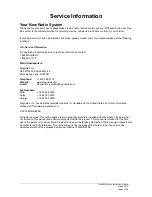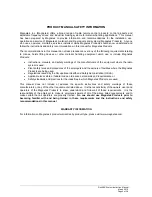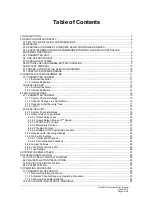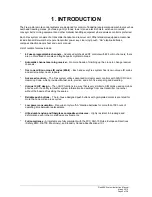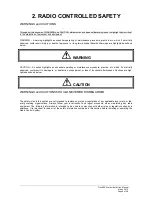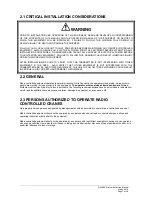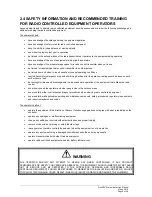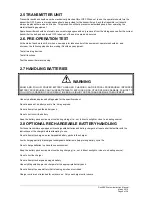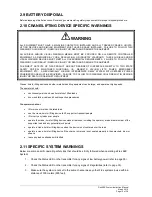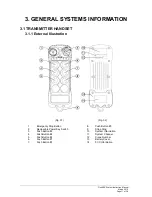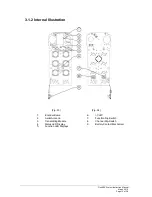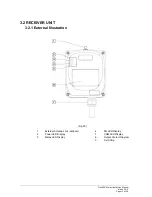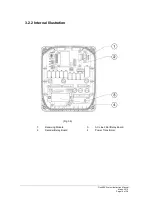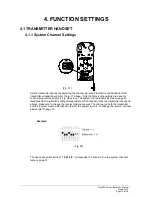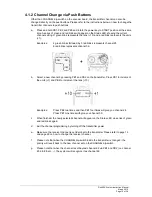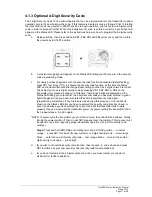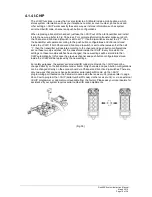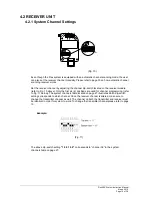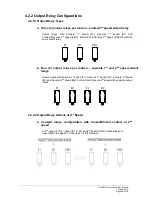
Flex 6EX System Instruction Manual
March 2016
Page 5 of 38
1. INTRODUCTION
The Flex
radio remote control systems are designed for control of industrial equipment and machinery such as
overhead traveling cranes, jib cranes, gantry cranes, tower cranes, electric hoists, winches, monorails,
conveyor belts, mining equipment and other material handling equipment where wireless control is preferred.
Each Flex
system consists of a transmitter handset and receiver unit. Other standard-equipped accessories
include transmitter waist belt, spare transmitter power key, clear vinyl pouch, “AA” alkaline batteries,
compass direction decal sheet and user’s manual.
List of notable features include:
*
62 user-programmable channels
– Advanced synthesized RF controls with 62 built-in channels; there
are no more fixed channels and fragile quartz crystals to break.
*
Automatic channel scanning receiver
– No more hassle of climbing up the crane to change receiver
channels.
*
Over one million unique ID codes (20bit)
– Each and every Flex system has its own unique ID codes
and serial number, never repeats.
*
Advanced controls
– The Flex system utilizes advanced microprocessor controls with 32bit CRC and
Hamming Code, which provide ultra-fast, safe, precise, and error-free encoding and decoding.
*
Unique I-CHIP design
– The I-CHIP functions in a way that is very similar to SIM cards used on mobile
phones, with the ability to transfer system information and settings from one transmitter to another
without the hassle of resetting the spares.
*
Reliable push buttons
– The in-house designed push buttons with gold-plated contacts are rated for
more than one million press cycles.
*
Low power consumption
– Requires only two “AA” Alkaline batteries for more than 100 hours of
operating time between replacements.
*
Ultra-durable nylon and fiberglass composite enclosures
– Highly resistant to breakage and
deformation even in the most abusive environments.
*
Full compliance
– All systems are fully compliant with the FCC Part-15 Rules, European Directives
(Safety, EMC, R&TTE, Machinery), and Industry Canada Specifications (IC).


